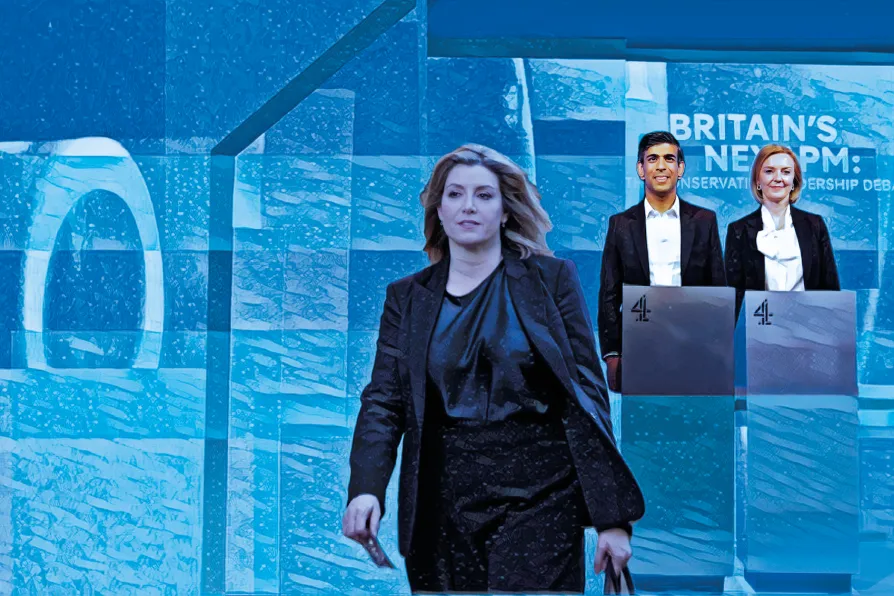Does widespread and uncontrolled use of AI change our relationship with scientific meaning? Or with each other? ask ROX MIDDLETON, LIAM SHAW and MIRIAM GAUNTLETT

 FINAL STRETCH: With Penny Mordaunt (left) knocked out yesterday, only Rishi Sunak and Liz Truss now remain in the race
FINAL STRETCH: With Penny Mordaunt (left) knocked out yesterday, only Rishi Sunak and Liz Truss now remain in the race
WHEN candidates for the leadership of the Tory Party — and at this moment the office of prime minister — argue that their opponent backs “socialist” policies we have to wonder if we have entered an alternative universe in which the normal rules of political gravity no longer apply.
It is true that the Conservative Party exists mostly in a hermetically sealed ideological bubble in which the issues that animate the great majority of people only appear as relevant if they threaten the party’s grip on power.
A clear illustration of this principle is the result of a poll conducted among the Tory faithful this week by Rupert Murdoch’s Times newspaper which showed that intervention to prevent climate change is at the very bottom of their priorities.

Once derided by Farage as a ‘fraud,’ Jenrick has defected to Reform, bringing experience and political ruthlessness to the populist right — and raising the unsettling prospect of a Farage-led movement with a seasoned operative pulling the strings, says ANDREW MURRAY

From Gaza complicity to welfare cuts chaos, Starmer’s baggage accumulates, and voters will indeed find ‘somewhere else’ to go — to the Greens, nationalists, Lib Dems, Reform UK or a new, working-class left party, writes NICK WRIGHT

The Tories’ trouble is rooted in the British capitalist Establishment now being more disoriented and uncertain of its social mission than before, argues ANDREW MURRAY










